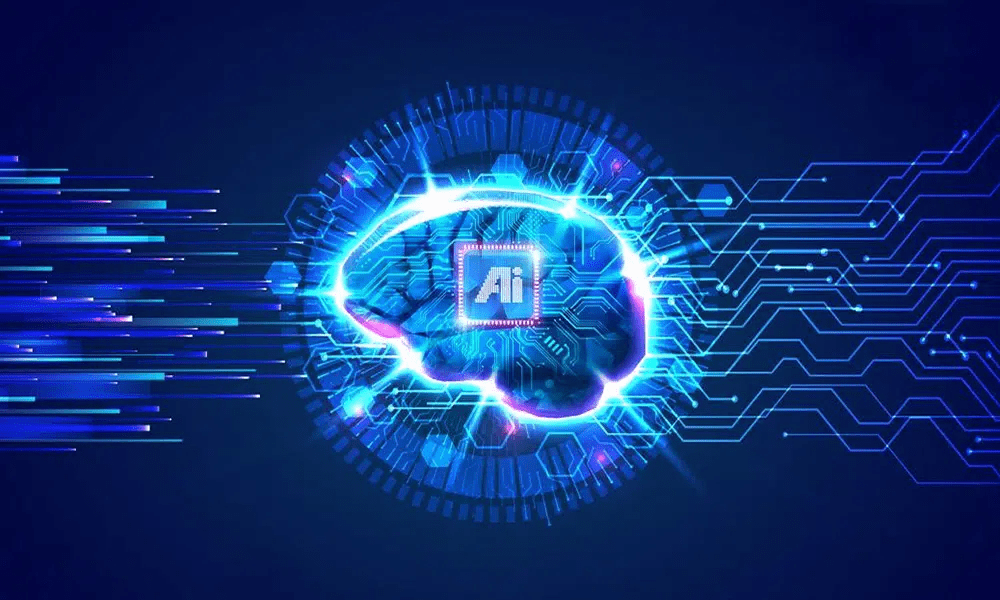The Foundation of Artificial Intelligence: The Importance of Training Data
Artificial Intelligence (AI) has become the cornerstone of modern technological development, with its applications rapidly expanding across various fields, from autonomous driving to medical diagnosis, from natural language processing to image recognition. All of these applications rely heavily on high-quality training data. The quality of training data directly determines the performance and accuracy of AI models. Therefore, efficiently scraping and processing training data has become a crucial issue in AI research and applications. This article will discuss the importance of AI training data scraping, analyze the challenges and opportunities in data scraping, and introduce how the Pangolin Scrape API revolutionizes data scraping technology and enhances AI training efficiency.
The Importance of AI Training Data
The Impact of Training Data on AI Model Performance
Training data is the foundation on which AI models learn and optimize. Models identify patterns and make predictions by learning from large amounts of data samples. Thus, the quality and diversity of training data are crucial to the performance of models. If the data is inaccurate, incomplete, or biased, the model’s predictive ability will be significantly affected.
High-quality training data should have the following characteristics:
- Accuracy: Data should accurately reflect real-world conditions, avoiding errors and noise.
- Diversity: Data should cover as many scenarios and conditions as possible to enhance the model’s generalization ability.
- Balance: Different categories of data should be evenly distributed to avoid the model being biased towards a particular category.
Data Requirements for Different Types of AI Applications
Different types of AI applications have varying data requirements. For example, image recognition requires a large amount of clearly labeled image data, while natural language processing requires diverse text data. Autonomous driving systems need real-time, high-precision sensor data. These different needs determine the complexity and diversity of data scraping.
For each type of application, the source, format, and labeling method of the data need to be carefully designed and managed. An efficient data scraping and processing system can significantly enhance the training efficiency and performance of AI models.
Challenges and Opportunities in Data Scraping
Difficulties in the Data Scraping Process
Several challenges arise in the data scraping process, including but not limited to the following:
- Data Privacy: With the strengthening of data privacy protection regulations, legally and compliantly scraping data has become a major challenge.
- Data Quality: The data scraped often contains noise, is incomplete, or inconsistent, requiring significant time for cleaning and processing.
- Data Volume: The performance of AI models is often proportional to the amount of data. Scraping enough high-quality data in a short period is a significant challenge.
- Data Labeling: Manually labeling data is time-consuming, expensive, and prone to subjective bias.
Overcoming Challenges with Innovative Technology
Innovative technologies offer new solutions to these challenges. For instance, automated data scraping tools and algorithms can greatly improve the efficiency and quality of data scraping. Technologies like the Pangolin Scrape API can intelligently extract the required data from the internet and other sources, simplifying the data scraping process.
Pangolin Scrape API: Revolutionizing Data Scraping Technology
Basic Concepts and Working Principles of Pangolin Scrape API
The Pangolin Scrape API is a powerful data scraping tool designed to efficiently collect various data from the internet through automation. Its working principles include:
- Data Crawling: Automatically accessing and extracting data from target websites through web crawling technology.
- Data Cleaning: Automatically filtering out noise and invalid data to ensure the quality and consistency of the data.
- Data Integration: Integrating and standardizing data from different sources to generate a unified data set.
Innovation and Technical Advantages of Pangolin Scrape API
The Pangolin Scrape API offers significant innovation and technical advantages in data scraping:
- Efficiency: Automated scraping and processing of data drastically reduce manual operation time.
- Flexibility: Supports various data formats and sources, adapting to different types of AI application needs.
- Intelligence: Built-in intelligent algorithms that can recognize and process complex data structures, improving data quality.
Application of Data Scraping in AI Learning
Advantages of Pangolin Scrape API in Data Scraping
Using the Pangolin Scrape API, AI developers can efficiently scrape and process training data, significantly enhancing the quality and efficiency of data scraping. Specific applications include:
- Real-time Data Scraping: Extracting the latest data from dynamic websites and real-time data sources, ensuring the timeliness of training data.
- Large-scale Data Collection: Scraping massive amounts of data in a short time, meeting the needs of large-scale model training.
- Automated Data Labeling: Combining machine learning algorithms for data labeling, reducing the workload of manual labeling.
Improving Data Scraping Quality and Efficiency
Developers can employ the following strategies to improve the quality and efficiency of data scraping with the Pangolin Scrape API:
- Regular Updates: Setting up periodic scraping tasks to keep data up-to-date.
- Diversified Data Sources: Scraping data from multiple different sources to enhance data diversity.
- Automated Cleaning and Filtering: Using built-in algorithms to automatically clean and filter data, ensuring its accuracy and consistency.
Pangolin Scrape API: The Key to Enhancing AI Training Efficiency
Simplifying the Data Scraping Process
The Pangolin Scrape API simplifies the data scraping process, significantly accelerating the AI model training cycle. Its main advantages include:
- Automation: Reducing manual intervention and increasing data scraping efficiency.
- High-concurrency Processing: Supporting high-concurrency data scraping, quickly generating large-scale datasets.
- Intelligent Scheduling: Intelligently scheduling data scraping tasks according to needs, optimizing resource usage.
Case Analysis: Actual Effect of Pangolin Scrape API
Real-world cases show that using the Pangolin Scrape API can significantly enhance AI model training efficiency. For example, in a natural language processing project, the Pangolin Scrape API automatically scraped and processed text data, reducing data scraping time by 50% and improving data quality by 20%. In another case, using the Pangolin Scrape API for image data scraping and labeling increased the accuracy of an image recognition model by 15%.
Case Study: Practice of Pangolin Scrape in AI Projects
Case 1: Natural Language Processing Project
In a natural language processing project, a research team used the Pangolin Scrape API to automatically scrape a large amount of text data from different websites. Through intelligent data cleaning and labeling, they generated a high-quality training dataset, significantly improving the model’s performance. Specific effects include:
- 50% Reduction in Data Scraping Time: Automation reduced the amount of manual operation time.
- 20% Improvement in Data Quality: Intelligent algorithms improved the accuracy and consistency of the data.
Case 2: Image Recognition Project
In another case, an image recognition project used the Pangolin Scrape API to scrape and label image data from multiple image databases. Through automated data integration and cleaning, they generated a diverse, high-quality image dataset. The model’s accuracy increased by 15%, and training time was reduced by 30%.
Future Prospects: Development Trends in AI Training Data Scraping
Future Development Directions of Data Scraping Technology
As AI technology continues to develop, data scraping technology is also advancing. Future data scraping technology may evolve in the following directions:
- Higher Degree of Automation: Achieving full-process automated data scraping and processing through more advanced automation technologies.
- Smarter Data Analysis: Using more intelligent algorithms for data analysis and processing to improve data quality.
- Stronger Privacy Protection: Developing new data protection technologies to ensure the legality and compliance of data scraping.
Adaptation and Leadership of Pangolin Scrape API
The Pangolin Scrape API will continue to adapt to and lead the development trends in data scraping technology by continuously innovating and optimizing to provide more efficient and intelligent data scraping solutions. For instance, by introducing smarter algorithms and technologies, it can further enhance the automation and intelligence of data processing, improving the quality and efficiency of data scraping.
Conclusion
High-quality training data is key to the success of AI models, and the Pangolin Scrape API provides strong support for AI training data scraping through its innovative technology and efficient operations. By simplifying the data scraping process and improving data quality and efficiency, the Pangolin Scrape API offers developers a powerful tool to gain an advantage in the competitive AI field. We encourage readers to explore and utilize the Pangolin Scrape API to enhance their AI projects, thereby advancing the development and application of artificial intelligence technology.






